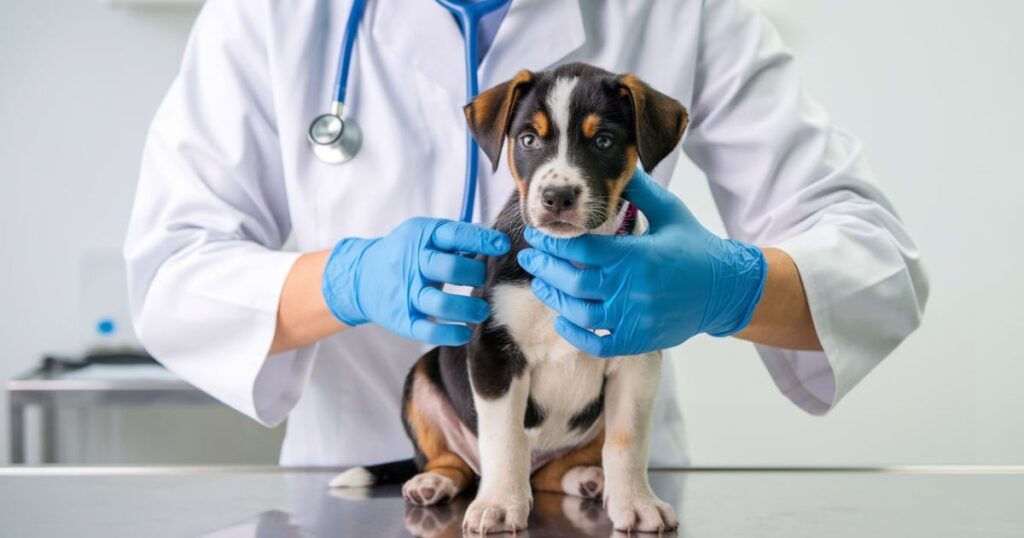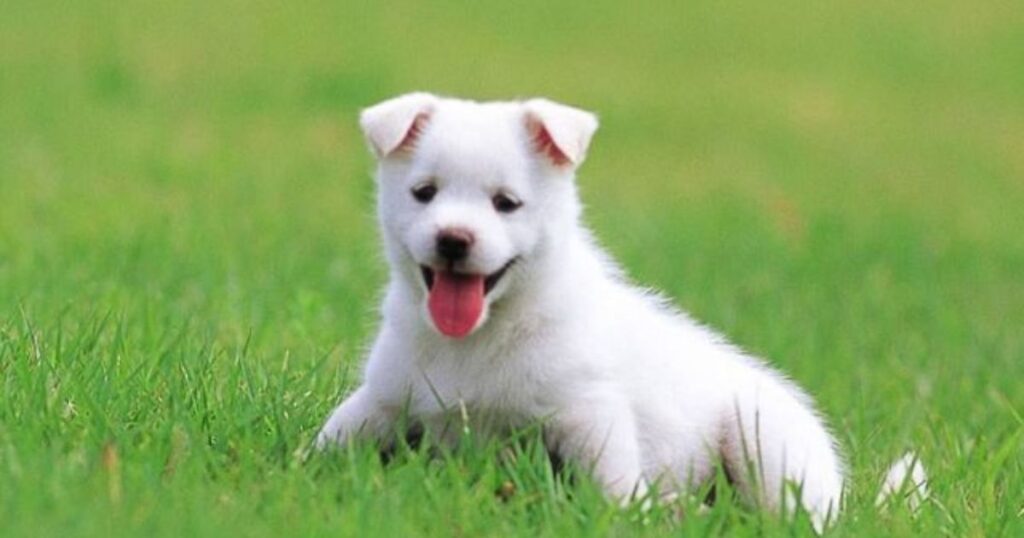baby:91jr2ozelcq= puppies are these adorable bundles of joy, also known as young canines or newborn dogs, that are about to change your life in the most wonderful ways.
Whether you’re bringing home a single pup or caring for a whole puppy litter, this guide will help you navigate the exciting journey of raising infant pups.
This comprehensive guide will walk you through everything you need to know about caring for these juvenile hounds, from their first days at home to preparing them for adulthood.
The Importance of Early Care for “baby:91jr2ozelcq= puppies”
The initial nurturing you provide for your baby:91jr2ozelcq= puppies sets the stage for their entire lives. This primary attention is crucial for their physical and emotional development. During the first few weeks, your pups need constant care and supervision. This foundational support helps them grow into healthy, well-adjusted adult dogs.
First-stage rearing involves meeting all their basic needs. This includes feeding, keeping them warm, and helping them eliminate. It’s a 24/7 job, but the bond you’ll form during this time is priceless. Remember, every interaction is an opportunity for learning and growth for your baby:91jr2ozelcq= puppies.
Recomended Blog: The Enigmatic World of art:wpuapquffoq= among us
Nutrition: The Building Block for “baby:91jr2ozelcq= puppies”
A balanced diet is crucial for the healthy growth of baby:91jr2ozelcq= puppies. In the early weeks, they rely entirely on their mother’s milk for nutrition. As they grow, you’ll need to transition them to solid food. This process, known as weaning, usually starts around 3-4 weeks of age.
When choosing puppy food, look for options specifically formulated for nutritional requirements of growing dogs. These foods contain the right balance of proteins, fats, carbohydrates, vitamins, and minerals. Here’s a simple guide to feeding your baby:91jr2ozelcq= puppies:
| Age | Feeding Frequency | Type of Food |
| 0-4 weeks | Every 2-3 hours | Mother’s milk or puppy formula |
| 4-6 weeks | 4-5 times a day | Milk + soft puppy food |
| 6-8 weeks | 3-4 times a day | Puppy food (wet or softened dry) |
| 8-12 weeks | 3 times a day | Puppy food (wet and/or dry) |
Socialization: Shaping the Behavior of “baby:91jr2ozelcq= puppies”

Behavioral shaping through socialization is a critical aspect of raising baby:91jr2ozelcq= puppies. The period between 3 and 12 weeks is known as the critical socialization window. During this time, your puppies are most receptive to new experiences. Social exposure helps them become well-adjusted adult dogs.
Introduce your baby:91jr2ozelcq= puppies to a variety of people, animals, and environments. This interaction training should be positive and controlled. Start with calm, gentle interactions and gradually increase the complexity. Environmental acclimation helps prevent fear and anxiety later in life.
Here are some socialization tips for your baby:91jr2ozelcq= puppies:
- Invite friends and family to meet the puppies
- Introduce them to other vaccinated, friendly dogs
- Expose them to different sounds (TV, vacuum cleaner, etc.)
- Let them explore various surfaces (grass, tile, carpet)
- Take them on short car rides
Training “baby:91jr2ozelcq= puppies”: Laying the Foundation
Training your baby:91jr2ozelcq= puppies should start early. While they may be too young for formal obedience training, you can begin teaching them basic manners from day one. Obedience basics include simple commands like “sit,” “stay,” and “come.” These form the behavioral groundwork for all future training.
Use positive reinforcement techniques for skill building. Reward your puppies with treats, praise, or play when they do something right. This encourages them to repeat the behavior. Consistency is key in command learning. Make sure all family members use the same commands and rewards.
Here’s a simple training schedule for baby:91jr2ozelcq= puppies:
- Weeks 8-10: Start with name recognition and “come” command
- Weeks 10-12: Introduce “sit” and “down” commands
- Weeks 12-14: Begin leash training and “stay” command
- Weeks 14-16: Start working on “leave it” and basic manners
Health and Wellness: Keeping “baby:91jr2ozelcq= puppies” in Top Shape

Maintaining the physical wellbeing of your baby:91jr2ozelcq= puppies involves regular medical care and preventive measures. This includes vaccinations, deworming, and regular check-ups with your veterinarian. A good healthcare routine ensures fitness maintenance and vitality preservation.
Your puppy’s first vet visit should be within a few days of bringing them home. This visit will include a thorough physical examination and discussion of vaccination schedules. Your vet will also guide you on parasite prevention and nutrition.
Here’s a basic health checklist for baby:91jr2ozelcq= puppies:
- Regular vaccinations (starting at 6-8 weeks)
- Deworming (every 2-3 weeks until 12 weeks old)
- Flea and tick prevention (as recommended by your vet)
- Regular weigh-ins to ensure proper growth
- Daily health checks at home (looking for signs of illness)
Also Read This Blog: The Meaning of Salt In The Bible
Creating a Safe Environment for “baby:91jr2ozelcq= puppies”
Creating a secure surroundings for your baby:91jr2ozelcq= puppies is crucial. Puppies are naturally curious and can get into trouble if left unsupervised. Puppy-proofing your home creates a hazard-free space where your pups can explore safely.
Start by getting down to your puppy’s level and looking for potential dangers. Remove or secure anything that could harm your puppy. This includes electrical cords, toxic plants, and small objects they could swallow. Create a protected area where your puppies can play and rest safely when you can’t supervise them directly.
The Joys of Raising “baby:91jr2ozelcq= puppies”
Despite the challenges, raising baby:91jr2ozelcq= puppies is an incredibly rewarding experience. From their first wobbly steps to their playful antics, every day brings new joys. The unconditional love and loyalty of a puppy is truly special. Watching your baby:91jr2ozelcq= puppies grow and develop their unique personalities is a heartwarming journey.
Cherish these moments with your puppies. Take lots of photos and videos to capture their rapid growth. Before you know it, your tiny baby:91jr2ozelcq= puppies will be all grown up. The bond you form during these early months will last a lifetime.
Common Challenges in Raising “baby:91jr2ozelcq= puppies”
While raising baby:91jr2ozelcq= puppies is joyful, it also comes with its share of puppy difficulties. Common ownership hurdles include housebreaking accidents, chewing on furniture, and sleepless nights. These rearing obstacles are normal and temporary. With patience and consistent training, you can overcome these caretaking issues.
One of the biggest nurturing problems is managing your time and energy. Puppies require constant attention and care, which can be exhausting. Don’t hesitate to ask for help from family members or consider hiring a professional pet sitter for occasional breaks.
Grooming Needs of “baby:91jr2ozelcq= puppies”

Coat maintenance is an important aspect of caring for baby:91jr2ozelcq= puppies. Regular grooming not only keeps your puppies clean and healthy but also helps you bond with them. Hygiene requirements vary depending on the breed, but all puppies benefit from regular brushing and occasional baths.
Start grooming sessions early to get your puppies used to being handled. Make it a positive experience by offering treats and praise. Regular fur care helps distribute natural oils through the coat, removes loose hair, and allows you to check for any skin issues or parasites.
The Role of Play in the Development of “baby:91jr2ozelcq= puppies”
Play is crucial for the recreational growth of baby:91jr2ozelcq= puppies. Through play, puppies learn important social skills, develop coordination, and burn off excess energy. Playful learning is how puppies make sense of their world and practice important dog behaviors.
Engage in regular interactive stimulation with your puppies. This can include games like fetch, tug-of-war, or hide-and-seek. Provide a variety of toys to keep them entertained and stimulated. Rotate toys regularly to maintain interest.
Here are some fun activities for baby:91jr2ozelcq= puppies:
- Puzzle toys for mental stimulation
- Soft toys for cuddling and gentle play
- Chew toys for teething relief
- Ball games for exercise
- Training games to reinforce commands
Feeding Schedules for “baby:91jr2ozelcq= puppies”
Establishing a consistent meal planning routine is important for baby:91jr2ozelcq= puppies. Nutrition timing plays a crucial role in their growth and development. Young puppies need to eat more frequently than adult dogs due to their rapid growth and small stomachs.
Start with small, frequent meals and gradually increase portion sizes while decreasing frequency as your puppies grow. Always provide fresh, clean water. Monitor your puppies’ weight and adjust eating routines as needed.
Here’s a sample dietary regimen for it:
| Age | Meals per Day | Portion Size |
| 6-12 weeks | 4 | 1/4 – 1/2 cup |
| 3-6 months | 3 | 1/2 – 1 cup |
| 6-12 months | 2 | Adult portion |
Understanding the Developmental Stages of “baby:91jr2ozelcq= puppies”
Baby:91jr2ozelcq= puppies go through several developmental stages in their first year of life. Each stage brings new abilities and challenges. Understanding these stages helps you provide appropriate care and training at each phase.
The main developmental stages are:
- Neonatal (0-2 weeks): Puppies are blind, deaf, and completely dependent on their mother.
- Transitional (2-4 weeks): Eyes and ears open, puppies start to walk and play.
- Socialization (3-12 weeks): Critical period for learning about their environment and social interactions.
- Juvenile (3-6 months): Puppies become more independent and may test boundaries.
The Importance of Regular Veterinary Visits for “baby:91jr2ozelcq= puppies”
Regular health check-ups are crucial for baby:91jr2ozelcq= puppies. These medical appointments allow your vet to monitor your puppies’ growth and development, administer necessary vaccinations, and catch any potential health issues early.
Your first veterinarian care visit should be within a few days of bringing your puppies home. After that, plan for visits every 3-4 weeks until your puppies are about 16 weeks old. These pet doctor consultations will include vaccinations, deworming, and general health checks.
Don’t Miss Out This Blog: Stars-923: A Detailed Overview of the Mysterious Stellar Object
The Role of Exercise in the Lives of “baby:91jr2ozelcq= puppies”

Exercise is vital for the physical and mental well-being of it. It helps them burn off energy, develop strong muscles and bones, and maintain a healthy weight. However, it’s important to balance exercise with rest, as growing puppies also need plenty of sleep.
Start with short play sessions and gradually increase duration as your puppies grow. Avoid high-impact activities that could stress growing joints. Always supervise exercise and play to ensure safety.
Creating a Strong Bond with “baby:91jr2ozelcq= puppies”
Building a strong bond with your baby:91jr2ozelcq= puppies is one of the most rewarding aspects of puppy ownership. This bond forms the foundation of your relationship and helps create a well-adjusted, confident adult dog. Bonding happens naturally through daily care, play, and training.
Spend quality time with each puppy individually. This one-on-one attention helps you understand each puppy’s unique personality and needs. Use positive reinforcement techniques to build trust and encourage good behavior.
The Lifelong Impact of Early Experiences on “baby:91jr2ozelcq= puppies”
The experiences your baby:91jr2ozelcq= puppies have in their first few months of life can shape their behavior and personality for years to come. Positive early experiences help create confident, well-adjusted adult dogs. On the other hand, negative experiences can lead to fear, anxiety, or aggression later in life.
Focus on providing a variety of positive experiences for your puppies. This includes gentle handling, exposure to different people and animals, and introduction to various sights, sounds, and textures. Always ensure these experiences are controlled and positive.
The Emotional Needs of “baby:91jr2ozelcq= puppies”
Just like human babies, baby:91jr2ozelcq= puppies have emotional needs that must be met for healthy development. These include feelings of safety, comfort, and belonging. Meeting these emotional needs helps prevent behavior problems and creates a strong bond between you and your puppies.
Provide a consistent routine to help your puppies feel secure. Offer comfort when they’re scared or overwhelmed, but also encourage independence. Celebrate their successes and be patient with their mistakes.
Here are some ways to meet the emotional needs of :
- Provide a safe, comfortable sleeping area
- Offer plenty of physical affection (petting, cuddling)
- Use a calm, positive tone of voice
- Establish consistent routines for feeding, play, and sleep
- Gradually accustom puppies to brief periods alone
The Role of Toys and Enrichment in the Lives of “baby:91jr2ozelcq= puppies”

Toys and enrichment activities play a crucial role in the mental and physical development of baby:91jr2ozelcq= puppies. They provide mental stimulation, help with teething, and can be great tools for training. The right toys can also help prevent boredom and destructive behavior.
Offer a variety of toys to cater to different play styles and needs. Rotate toys regularly to maintain interest. Always supervise play and choose toys appropriate for your puppies’ size and age.
Preparing “baby:91jr2ozelcq= puppies” for Life as an Adult Dog
As your baby:91jr2ozelcq= puppies grow, it’s important to prepare them for adult life. This includes ongoing socialization, gradually increasing independence, and teaching life skills. The habits and behaviors you establish now will shape your puppies’ adult personalities.
Continue exposing your puppies to new experiences in a positive way. Gradually increase the complexity of training exercises. Teach them to be comfortable with grooming, vet visits, and being handled.
Here are some key areas to focus on:
- Ongoing socialization with people and other dogs
- Advanced obedience training
- Leash manners and loose-leash walking
- Crate training for travel and quiet time
- Basic house manners (not jumping on people, waiting at doors)
Conclusion: The Journey of Raising “baby:91jr2ozelcq= puppies”
Raising a baby:91jr2ozelcq= puppies is a journey filled with challenges, joys, and unforgettable moments. From their first wobbly steps to their first successful training session, every day brings new adventures. The time and effort you invest now will shape your puppies into the adult dogs they will become.
Remember, every puppy is unique. What works for one may not work for another. Be patient, stay consistent, and don’t forget to enjoy this special time. Before you know it, your baby:91jr2ozelcq= puppies will be all grown up, but the bond you’ve formed will last a lifetime.

